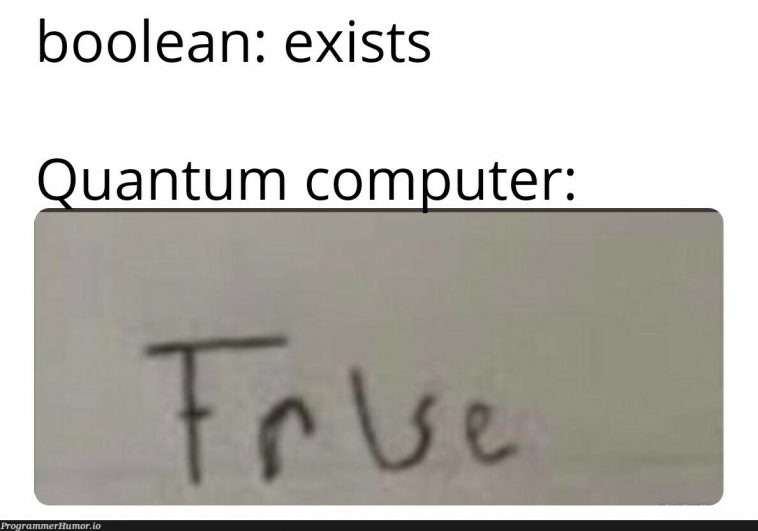Bitcoin Tech Talk #451
Interesting Stuff
Expensive Nuclear - I’ve found it baffling to understand why nuclear technology hasn’t progressed much since the 60’s. This is an article that explains why. You would think that the clear utility of the highly productive energy source would be much more utilized over time, but as the article shows, there has been a lot of really bad science and even worse regulatory regimes that have incentivized higher and higher costs for nuclear power plants over time. There’s a lot of fiat stupidity that bears its ugly head here, much in the same way that red meat and traditional marriage has been debased.
American Hikikomori - Hikikomori are a phenomenon in Japan of mostly men who have no job, live with their parents and don’t go out, well into adulthood. As the author argues, this isn’t a unique phenomenon, and there are related, though different phenomena, like NEET (Not employed, educating or training), Net Cafe Refugees and so on, which are also in Japan. But more importantly, the lonely, anti-social behavior that characterizes these groups is being found en-masse among zoomers in America. The root cause, as the author identifies, is a lack of hope, clearly seen in the decline of living standards the past 40 years in both countries.
Solzhenitsyn’s Harvard Speech - Solzhenitsyn was a survivor of the Russian Gulag during the Communist Party’s rule there and wrote what’s perhaps the definitive memoir of what happened there in The Gulag Archipelago. After he was kicked out of the USSR, he gave a speech at Harvard in 1978, which was both unexpected and prescient, which is what this article is about. As he identified in that speech, the West was in decline where cowardice, decay, indulgence and distraction were its characteristics, rather than virtue, courage and life. He spoke of a spiritual emptiness and a collapse which sadly has continued to this day. Though he doesn’t mention it specifically, what he was describing was the fiat rot that had hollowed out the West.
AI Confabulation - The article is about AI written by a philosopher, bringing the phenomenon of AI hallucinations closer to home. The author argues that LLM hallucinations are not different than what a lot of amnesiacs do when they can’t remember what happened, which is to make something up. This phenomenon is called confabulation, and reveals that the emergent LLM behavior of hallucinations is not far off from how minds work when there isn’t any true information from which to pull. I suspect that there’s a deeper connection between how LLMs work and how our minds work which ironically is revealed in this flaw.
MAiD Flaws - Canada’s euthanasia program (Medical Assistance in Dying) has been controversial from the start. This is an article written by a doctor in Canada about just how pervasive it is and how badly it’s been abused. I was shocked to learn that so many people have died through the program with seemingly little evidence of the patient’s desire to die. A big reason for the continual expansion of the program since 2016 is the cost savings, which, in a country with universal health care, can be significant.
What I'm up to
Bitcoin Journeys - I talked to Stephan Zimmerman about my Bitcoin origin story, why I got into Bitcoin and the narrative shifts in Bitcoin through the years. We also talked about all the early adopters that sold and have serious regret, altcoin stupidity and learning conviction to hold.
Christian Freedom - I gave this talk at the Thank God for Bitcoin luncheon last week about why freedom isn’t about coasting and resting. Sorry about the audio quality, but it’s literally off of someone’s iPhone.
BTC Prague - I’ll be at this conference June 19-21. If you haven’t seen this yet, Satlantis has a great list of all the pleb events going on around the conference.
Nostr Note of the Week
What I’m Promoting
Bitcoin
Quantum Bitcoin - This is a report from ChainCode about the threat of quantum computing for Bitcoin and the various mitigations that the community should explore. As the report notes, it’s not really a threat to mining because of a lack of parallel computing, for example. The main debate is whether the vulnerable coins should be burned or kept around in case there’s a quantum threat past a certain date. The question is really a community one, and as the report shows, there are a lot of Bitcoin researchers looking for good paths should such a threat arise.
Arkade - Ark has made some progress and they’ve launched an entire smart contract environment that transfers the virtual transaction outputs. The main advantage of Arkade is that it’s very similar to Bitcoin’s Script, but has additional introspection OP codes, allowing for better expressibility within Ark. Yet users still have the option of exiting from the Ark system unilaterally, which is a must for any verifiable second layer. The promise of being able to program money, is, of course, very interesting technically. Whether it will be used as a core economic piece of Bitcoin is another question.
Spam Cleanup - Robin Linus has proposed one of the most clever and interesting ways to deal with the spam in the UTXO set, which is to essentially put the onus on the spender to prove its spendability. The main idea is that certain UTXOs, especially those around the dust limit (currently about 50% of all transactions, and 90%+ of P2TR transactions) can be pruned from the UTXO set and only the location (block height, transaction index, output index) retained by the node software. The spender of these dust transactions would have to provide extra data showing that their UTXO in this state is being spent. This reduces the UTXO set significantly while shifting the burden of the validation data being sent with the transaction itself.
Lightning
Bitcoin Deposits - We’ve talked for years about layer 2’s, but it’s now to talk layer 3’s. This is a proposal to build a system on top of Lightning called Deposit Wallets. The main idea is a vault opened on the user’s behalf that a Lightning Service Provider manages. If that sounds like you need to trust someone, you do, though not completely. The user still has to sign transactions, but doesn’t need to be online to receive, for example. The main benefit is that there’s zero on-chain footprint in this system, and the payments settle in Lightning.
Square Terminals accept LN BTC - Square, Jack Dorsey’s company has announced that their terminals will now accept Bitcoin/Lightning payments. Many merchants use the Square Point of Sale system, so the penetration is obviously great. Unfortunately, this also means that these businesses now have to learn a new payment flow, which, if my experience is an indicator, generally is not known by frontline employees and adds friction via asking for someone that knows how Bitcoin payments work. Still, as we Bitcoinize, the usage of lightning payments will be a canary in a coal mine on this system, assuming they keep this feature and don’t deprecate it.
Rails - Amboss has launched a self-custody software that essentially puts your Bitcoin to work routing for the Lightning network. The main idea is that by becoming a liquidity provider, you can collect fees on Bitcoin that you still control, what would be considered putting your Bitcoin to work. Of course, you can do this yourself by managing a routing node, but the Amboss people have some secret sauce AI to help you do all of that without having to know so much inside baseball.
Economics, Engineering, Etc.
Sovana - One of the more interesting ways to acquire Bitcoin that came out of the recent conference is this company, which lets you tap the equity built in your house. The main way it works is that the company will buy Bitcoin on your behalf depending on the equity you have on your house, and will let you exit at any point before 10 years. The catch is that you’re responsible for 100% of the losses on the Bitcoin and get only 50% of the gains. That said, it requires no up front money on your part, so in many ways, it’s like a loan to buy Bitcoin backed by the equity in your house. An interesting way to make liquid an asset which traditionally is not.
Blockstream App - Their updated wallet, in conjunction with their hardware wallet, Jade Plus lets users buy Bitcoin straight to self-custody. I’ve been surprised that this hasn’t been a combination I’ve seen that often, as direct integrations with exchanges would seem to be the obvious path for wallet companies to make money. If this proves popular, I can see something like this become a standard part of any exchange’s offering.
Pakistan Bitcoin Strategic Reserve - The middle eastern country announced that they’re establishing a Bitcoin strategic reserve, and possibly adding to it with the excess energy it generates. Unsurprisingly, this has the IMF concerned. This was definitely not a country I had on my bingo card for early Bitcoin adoption, but it makes sense the more I think about it. They’re a nuclear power, have quite a few enemies nearby and are under threat of sanction quite often. Bitcoin is their hedge.
Quick Hits
4020 BTC - Another week, another stack larger than what miners mine in a week for Strategy.
Steak and Shake - The fast food, tallow fries vendor claims that they’re saving 50% on fees using Lightning at their locations.
300 BTC - That’s not a sum acquired by some Bitcoin treasury company, that’s how much Ross Ulbricht’s donation address received.
$5 Wrench Attack - These seem to be happening a bit more lately, though I’d characterize them as spurned altcoiners than gangsters targeting whales.
PSG Bitcoin Reserve - (article in French) The recently crowned European Champion’s League winners have apparently started saving in Bitcoin.
Fiat delenda est.







